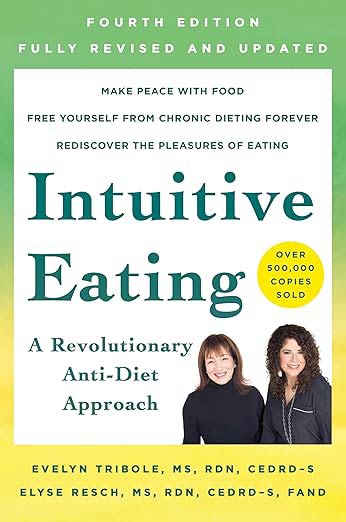We continue our journey this month with the 10 Principals of Intuitive Eating, in case you missed it. Just to quickly reiterate, authors Evelyn Tribole, and Elyse Resch first published their book The 10 Principles of Intuitive Eating in 1995 and since has been pivotal in the world of eating disorder treatment and the anti-diet-culture. Now in it’s 4th edition, it continues to be a popular and life-changing approach for so many – including us!
This month, we will be drilling into principal number 3 – “Make Peace with Food.”
Principle #3 of Intuitive Eating, Make Peace with Food, encourages individuals to end this exhausting struggle and begin developing a healthy, respectful relationship with food.
What Does “Make Peace with Food” Mean?
Making peace with food means giving yourself unconditional permission to eat all types of food—without guilt, without shame, and without rules. It involves letting go of the mental restrictions that dieting imposes and recognizing that no food is inherently “good” or “bad.”
This principle challenges the dieting mindset that certain foods must be avoided to stay “in control.” Ironically, the act of restriction often leads to feelings of deprivation, which can result in intense cravings, overeating, or bingeing—the very behaviors diets claim to prevent.
Why Is This So Important?
When you forbid a particular food, it gains power. It becomes more desirable simply because it’s off-limits. This phenomenon is known as the “forbidden fruit effect.” Eventually, you may give in to the craving and eat the food, but the experience is often accompanied by guilt, shame, and a sense of failure.
In contrast, when all foods are emotionally and morally neutral, you’re more likely to eat in a way that feels balanced and satisfying. Over time, your cravings regulate, and your choices become more attuned to what your body truly wants and needs.
Key Ideas of Principle #3
- Unconditional Permission to Eat
Allow yourself to eat any food without judgment or justification. This doesn’t mean you’ll eat donuts and chips all day—it means you’re free to include them if and when you genuinely want them. - Reject Food Rules and Guilt
Food rules are fake news! Food rules genuinely are constructs often rooted in diet culture. Letting go of these rules helps break the cycle of restriction and bingeing. - Listen to Your Body, Not External Rules
Your hunger, fullness, satisfaction, and energy levels are far more accurate and trustworthy guides than a diet plan. - Trust Your Inner Wisdom
With time and practice, your body will begin to crave a variety of foods—including nutritious ones—when it knows nothing is off-limits.
Common Concerns and Misunderstandings
- “If I let myself eat anything, I’ll never stop.”
This is a common fear—and a valid one if you’ve spent years dieting. But once food loses its forbidden appeal, the intensity of cravings tends to decrease. What initially feels like chaos usually transforms into a more peaceful and balanced eating experience. - “Isn’t this just an excuse to eat junk food?”
Not at all. Intuitive Eating emphasizes honoring your body—which includes taste preferences, energy needs, and long-term health. Once you’ve made peace with food, you’ll naturally gravitate toward a variety of foods that make you feel good physically and emotionally.
Practical Tips for Making Peace with Food
- Notice your food rules. Write them down. “I shouldn’t eat after 8 p.m.” or “I can’t have carbs at lunch.” Then challenge them—ask yourself where they came from and whether they serve you.
- Introduce previously forbidden foods. One at a time, reintroduce foods you’ve avoided. Eat them mindfully, without distraction or guilt, and observe how your body responds.
- Be curious, not judgmental. If you overeat or feel uncomfortable, don’t shame yourself. Use it as an opportunity to learn more about your hunger, satisfaction, and emotional needs.
- Seek support. This principle can be difficult to implement alone—especially if you’ve spent years dieting. Consider working with an intuitive eating counselor or therapist.
Additional Thoughts
After working with individuals who have struggled with eating disorders, I have realized that making peace with food can take time. It may be years before this new ethos settles in and feels easier because of the length of time one has lived with the old rules. Additionally, hunger cues and hormones in our body take time to heal. If we have spent years ignoring hunger cues then sometimes they may have gone dormant. It is possible not to obsess about the donuts in the kitchen and even totally forget they are there to begin with.
Making peace with food is a courageous step toward reclaiming your body, your joy, and your autonomy. It’s about trusting yourself and creating a relationship with food that’s based on respect, not rules. It may feel scary at first, but with patience and compassion, you can move from chaos to calm—and discover that food can be a source of pleasure, nourishment, and freedom.
You deserve peace. You deserve permission. You deserve to eat.
If you feel like you would like to have a further discussion on this topic, please contact our team to schedule a session.
Resources:
We keep a full list of resources on anti-diet culture and body dissatisfaction work on our website. Check out our comprehensive list here.


